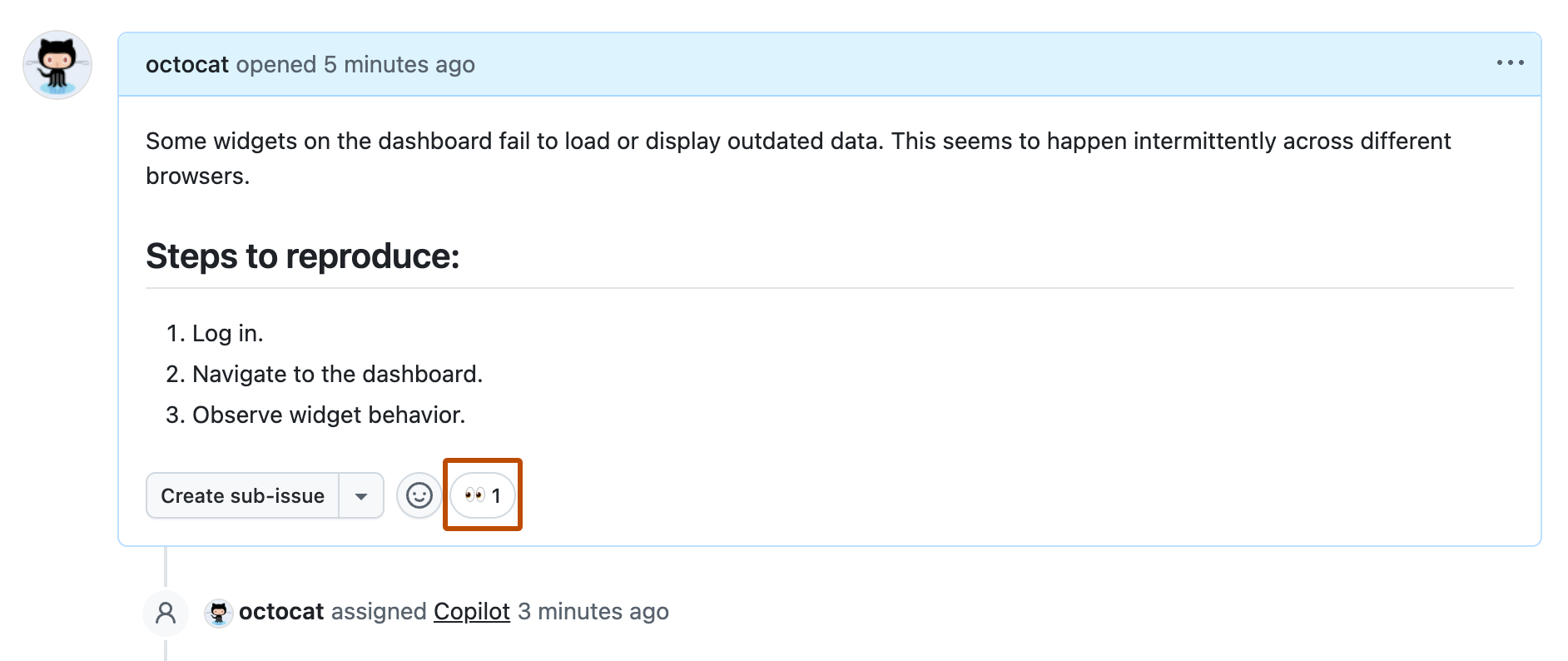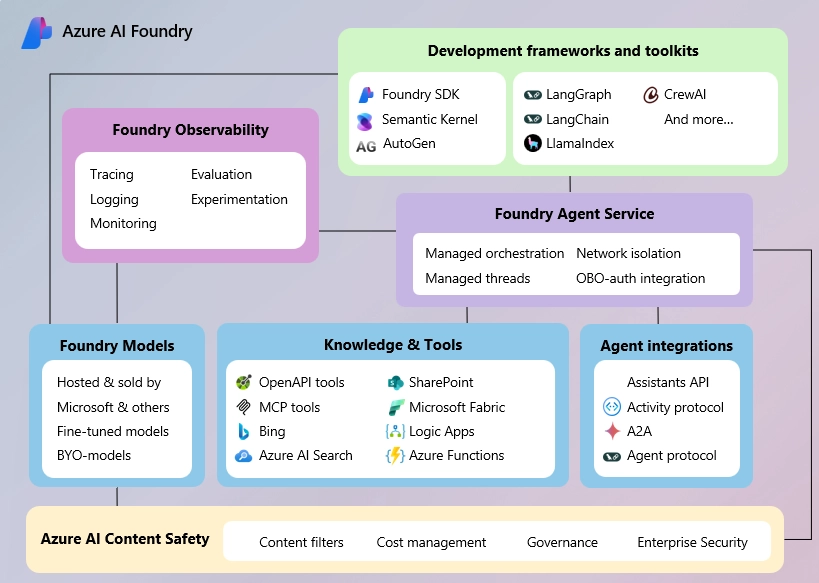What is the GitHub Copilot Coding Agent?
The GitHub Copilot Coding Agent is GitHub’s first autonomous, asynchronous software development agent that can work independently on issues and create pull requests. Unlike traditional AI coding assistants that provide suggestions while you code, this agent operates like a teammate—you assign it work, and it delivers tested solutions.
 Overview of GitHub Copilot Coding Agent capabilities and workflow.
Overview of GitHub Copilot Coding Agent capabilities and workflow.
Main capabilities:
- Accept issue assignments and work autonomously in the background
- Create and iterate on pull requests with complete workflows
- Run tests, linters, and builds to validate changes
- Respond to feedback and code review comments
- Integrate with GitHub Actions for secure, isolated execution
- Support Model Context Protocol (MCP) for extended capabilities
The GitHub Copilot Coding Agent is currently in public preview for GitHub Copilot Pro, Pro+, Business, and Enterprise users.
Why use the Coding Agent?
The Coding Agent transforms how development teams handle routine tasks by working asynchronously on your behalf. It enables teams to:
- Delegate routine work: Assign low-to-medium complexity tasks to focus on strategic work
- Maintain development flow: Continue working while the agent handles background tasks
- Reduce context switching: No need to stop current work for maintenance tasks
- Scale team capacity: Handle more issues simultaneously with AI assistance
- Improve code quality: Consistent application of coding standards and testing practices
Getting Started
Prerequisites
The Coding Agent requires:
- GitHub Copilot Pro, Pro+, Business, or Enterprise subscription
- Repository write access for users assigning issues
- Enabled in organization settings (for Business/Enterprise plans)
Enabling the Agent
For individual accounts:
- Copilot Pro+: The agent is enabled by default.
- Copilot Pro: The agent is available, but enablement status may require verification in your account settings.
For organizations (Business/Enterprise):
- Navigate to organization settings
- Go to Copilot → Coding agent
- Enable the feature for your organization
- Configure optional MCP servers and custom instructions
Your First Assignment
To start using the coding agent:
- Create a well-scoped issue with clear requirements and acceptance criteria
- Assign the issue to
@copilotlike you would assign to any team member
After completing the steps above, here’s how the workflow looks in practice:
 Assigning an issue to Copilot in the GitHub interface.
Assigning an issue to Copilot in the GitHub interface.
- Wait for the 👀 (eyes) reaction confirming the agent has accepted the assignment
- Monitor progress through the automatically created draft pull request
- Review and iterate using standard pull request workflows
How the Agent Works
Secure Development Environment
When assigned a task, the agent:
- Spins up a secure, ephemeral development environment using GitHub Actions
- Clones the repository and analyzes the codebase using GitHub’s RAG-powered code search
- Configures the environment according to repository settings and custom instructions
- Maintains isolation with controlled internet access and branch protections
 Visual workflow: Issue assigned to Copilot and tracked in the repository.
Visual workflow: Issue assigned to Copilot and tracked in the repository.
Autonomous Development Process
The agent follows a structured approach:
- Analysis: Reviews the issue description, related PRs, and codebase context
- Planning: Creates a step-by-step plan visible in the pull request description
 Copilot creates a draft pull request linked to the assigned issue.
Copilot creates a draft pull request linked to the assigned issue.
- Implementation: Makes code changes across multiple files as needed
- Validation: Runs tests, linters, and builds to ensure code quality
- Documentation: Updates the PR description with progress and reasoning
Detailed Session Monitoring
Agent session logs provide complete transparency into the agent’s decision-making process, showing its internal reasoning as it analyzes your codebase, plans changes, and validates its work. This detailed “internal monologue” is visible throughout the development process.
Code Review and Iteration
The agent creates draft pull requests that integrate seamlessly with existing workflows:
- Standard PR workflow: Review changes like any other team contribution
- Responsive iteration: Leave comments and the agent will address feedback
- Quality gates: All existing branch protections and CI/CD requirements apply
- Human oversight: Manual approval required for GitHub Actions workflow execution
 Track the agent’s progress and session logs in the GitHub UI.
Track the agent’s progress and session logs in the GitHub UI.
Agent vs Agent Mode: Key Differences
Understanding the distinction between GitHub Copilot’s Coding Agent and Agent Mode is crucial:
| Feature | Coding Agent | Agent Mode |
|---|---|---|
| Execution | Asynchronous, cloud-based | Synchronous, local IDE |
| Scope | Complete issues with PR workflows | Multi-step tasks in editor |
| Environment | GitHub Actions sandbox | Your local development environment |
| Workflow | Issue assignment → PR creation → Review | Real-time collaboration in editor |
| Best for | Background tasks, delegation | Active development sessions |
 Comparison of Coding Agent and Agent Mode features and workflows.
Comparison of Coding Agent and Agent Mode features and workflows.
Advanced Configuration
Model Context Protocol (MCP)
The agent supports MCP servers to extend capabilities beyond the default integrations:
Default MCP Servers:
- GitHub MCP: Access to issues, PRs, and repository data
- Playwright MCP: Web browser automation for testing UI changes
Custom MCP Configuration: Repository administrators can configure additional MCP servers through repository settings to provide specialized tools and data access.
Custom Instructions
Repository-level instructions help the agent understand your coding standards, testing frameworks, and architectural patterns. These can be added via repository settings or configuration files to ensure consistent code quality.
Good Practices
Ideal Tasks for the Agent
Well-suited tasks:
- Bug fixes with clear reproduction steps
- Feature additions with defined scope
- Test coverage improvements
- Documentation updates
- Dependency upgrades
- Code style refactoring
Tasks to handle yourself:
- Complex architectural decisions
- Security-sensitive implementations
- Broad, undefined requirements
- Production incident response
- Tasks requiring deep domain knowledge
Writing Effective Issues
The quality of results depends heavily on well-structured issues:
## Problem
Clear description of what needs to be fixed or implemented
## Acceptance Criteria
- Specific requirements for the solution
- Testing expectations
- Quality standards
## Context
- Relevant file paths
- Dependencies or constraints
- Related issues or PRsResource Usage and Costs
Typical Usage Patterns
The Coding Agent consumes both GitHub Actions minutes (for the development environment) and premium requests (for model inference):
- Premium requests: Expect 30-50 premium requests per agent session
- GitHub Actions minutes: Usage scales with task complexity and iteration cycles
- Cost planning: Monitor usage through your GitHub billing dashboard
Resource Planning Considerations
Usage varies significantly based on:
- Task complexity and scope
- Number of files modified
- Review and iteration cycles
- Testing and validation requirements
For effective resource planning, consider that more complex or iterative tasks will consume more Actions minutes and premium requests. Start with simpler, well-defined tasks to understand your usage patterns.
Security and Limitations
Security Measures
The agent includes built-in security protections:
- Isolated execution: Runs in ephemeral GitHub Actions environment
- Limited permissions: Cannot access organization secrets without explicit configuration
- Branch protections: Prevents direct pushes to protected branches
- Firewall enabled: Prevents data exfiltration by default
- Audit trails: All actions logged for transparency
Current Limitations
- Scope sensitivity: Works best with well-defined, medium-complexity tasks
- Language support: Optimized for popular programming languages
- Context limitations: May struggle with very large codebases
- Domain specificity: Limited effectiveness in highly specialized domains




Leave a comment